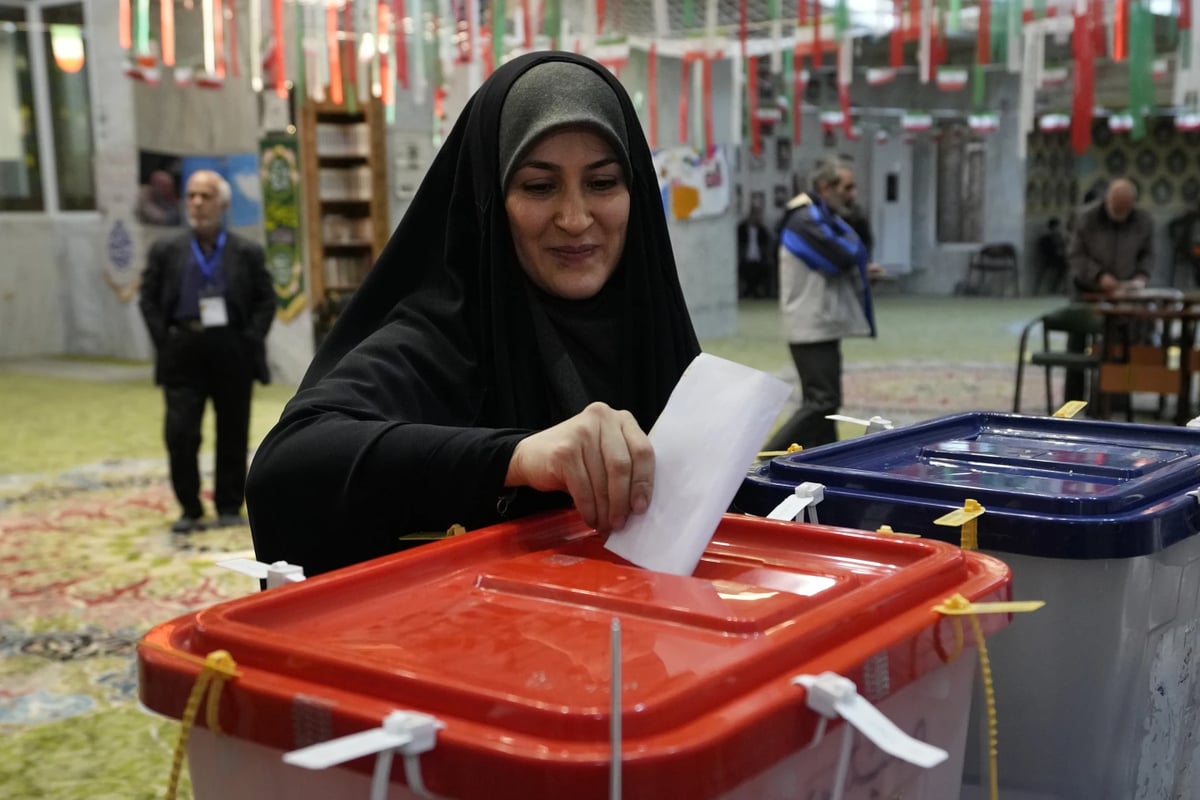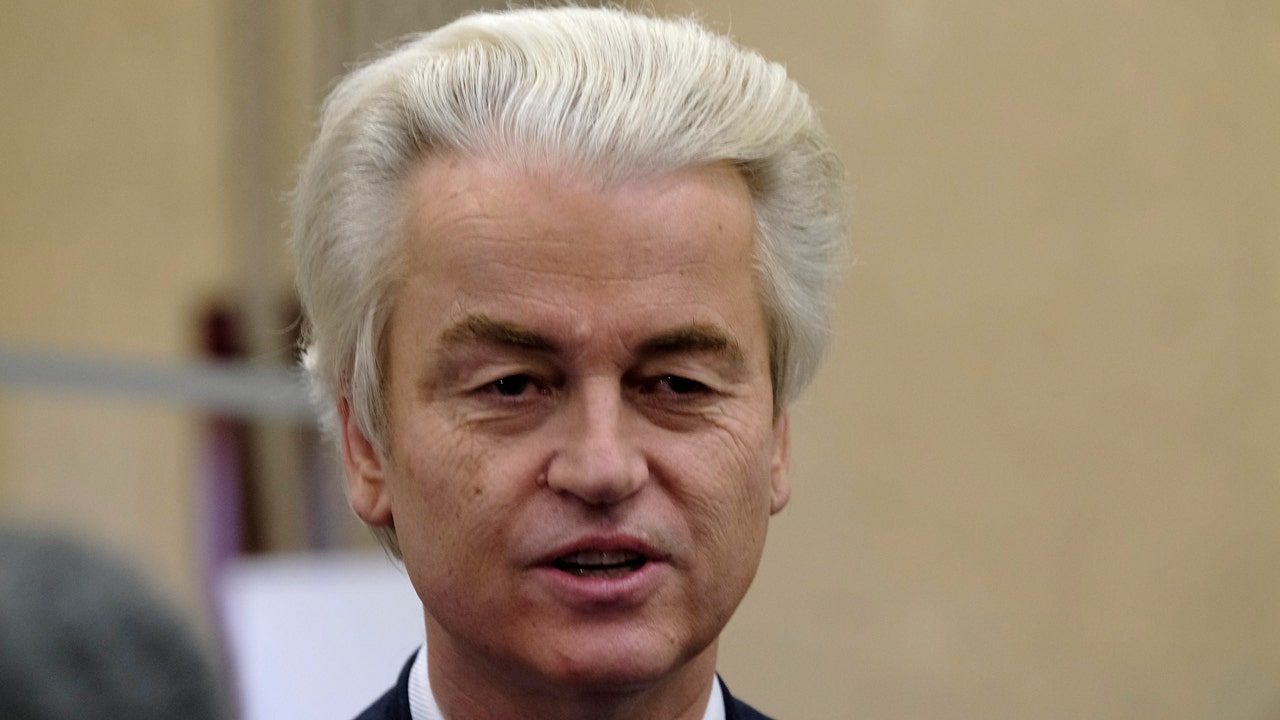Khamenei voted before a crowd of journalists in Tehran, his left hand slightly shaking as he took his ballot from his right, paralyzed since a 1981 bombing. State television showed a woman nearby weeping as she filmed Khamenei with her mobile phone.He urged people to vote in his brief remarks.“Pay attention to this, make friends happy and disappoint the evil-wishers,” he said.Khamenei’s protégé, hard-line President Ebrahim Raisi, repeated that call and urged the public to make it “a glorious day for the Iranian nation.”But turnout appeared depressed in Tehran, where the state-owned polling center ISPA had estimated a turnout of 23.5%. ISPA hadn’t put out election data prior to the vote until Thursday, something highly unusual as their figures typically get released much earlier.ISPA’s poll, based on a survey of 5,121 voting-age people, predicted a turnout 38.5% nationally. It said the margin of error in the poll was 2%.That could put turnout on track to be its lowest ever. The lowest previous came in the last parliamentary election in 2020, which saw a 42% turnout.The boycott calls have put the government under renewed pressure — since its 1979 Islamic Revolution, Iran’s theocracy has based its legitimacy in part on turnout in elections.In one polling place Friday in Tehran, a young woman without a hijab and her mother, wearing one, entered. There was no comment from officials or police on hand.“I accompanied my mother who wanted to vote just to remind authorities about last year’s crackdown,” said the daughter, who gave her first name, Zohreh. Her mother voted for a relative moderate running in their district, while Zohreh declined to cast a ballot, she said.Meanwhile, a heavy security presence could be seen across the capital, with ordinary and anti-riot police officers visible in main squares and junctions. Some 200,000 security forces have been deployed across the country as over 59,000 polling stations opened. Another 1 million people reportedly are running the election, home to some 85 million people.Estimates put the voting-age population at 61 million.Parliament terms run for four years, and five seats are reserved for Iran’s religious minorities. Under the law, the parliament has oversight over the executive branch, votes on treaties and handles other issues. In practice, absolute power in Iran rests with its supreme leader.Hard-liners have controlled the parliament for the past two decades — with chants of “Death to America” often heard from the floor.Under Parliament Speaker Mohammad Bagher Qalibaf, a former Revolutionary Guard general who supported a violent crackdown on Iranian university students in 1999, the legislature pushed forward a bill in 2020 that greatly curtailed Tehran’s cooperation with the United Nations nuclear watchdog, the International Atomic Energy Agency.That followed then-U.S. President Donald Trump’s unilateral withdrawal of America from Iran’s nuclear deal with world powers in 2018 — an act that sparked years of tensions in the Middle East and saw Iran enrich enough uranium at record-breaking purity to have enough fuel for “several” nuclear weapons if it chose.More recently, the parliament has focused on issues surrounding Iran’s mandatory head covering, or hijab, for women after the 2022 death of 22-year-old Amini in police custody, which sparked nationwide protests.The protests quickly escalated into calls to overthrow Iran’s clerical rulers. A subsequent security crackdown killed over 500 people, with more than 22,000 detained.Authorities extended the voting time by six hours, closing polling places at midnight local time (2030 GMT). Initial election results are expected as early as Saturday.
Source link
Iranian parliament vote, first since 2022 mass protests, sees a low turnout despite government push





